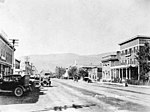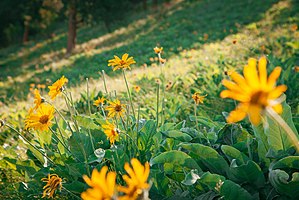Kelowna: Difference between revisions
(Created page with "{{Infobox country |native_name = |conventional_long_name = City of Kelowna |common_name = Kelowna |image_flag = |alt_fl...") |
No edit summary |
||
| Line 7: | Line 7: | ||
|national_motto = | |national_motto = | ||
|national_anthem = | |national_anthem = | ||
|image_map = | |image_map = Skylines_of_Brisbane_in_winter_misty_morning_seen_from_Kangaroo_Point,_Queensland_04.jpg | ||
|alt_map = | |alt_map = | ||
|map_caption = Kelowna Skyline | |map_caption = Kelowna Skyline | ||
| Line 44: | Line 44: | ||
|area_label2 = <!-- label below area_label (optional) --> | |area_label2 = <!-- label below area_label (optional) --> | ||
|area_dabodyalign = <!-- text after area_label2 (optional) --> | |area_dabodyalign = <!-- text after area_label2 (optional) --> | ||
|population_estimate = 473,000 | |population_estimate = 3,473,000 ([[Cities in Zamastan|15th]]) | ||
|population_estimate_rank = | |population_estimate_rank = | ||
|population_estimate_year = | |population_estimate_year = | ||
| Line 92: | Line 92: | ||
}} | }} | ||
'''Kelowna''', officially the '''City of Kelowna''', is a city on the western coast of [[Zamastan]], and is also the [[Cities in Zamastan|nation's | '''Kelowna''', officially the '''City of Kelowna''', is a city on the western coast of [[Zamastan]], and is also the [[Cities in Zamastan|nation's 15th most populous city]]. As of the 2018 census-estimate, it has a population of 3,473,000. Founded in 1734, Kelowna became an important port for distributing coal and iron exports across the [[Skith|Skithan Empire]]. The city was also the site of the start of the [[Parabocan War]] in 1871, the [[Battle of Kelowna]]. | ||
Kelowna was heavily devastated during the 8.3 magnitude [[2019 Coastal Valley Earthquake]]. Over 3,400 people died in the city during the quake, and thousands more were injured. [[President of Zamastan|President]] [[Anya Bishop]] pledged to rebuild the city to a more prepared state for large scale earthquake tremors. | Kelowna was heavily devastated during the 8.3 magnitude [[2019 Coastal Valley Earthquake]]. Over 3,400 people died in the city during the quake, and thousands more were injured. [[President of Zamastan|President]] [[Anya Bishop]] pledged to rebuild the city to a more prepared state for large scale earthquake tremors. | ||
Latest revision as of 00:34, 26 April 2020
City of Kelowna | |
|---|---|
 Kelowna Skyline | |
| Demonym(s) | Kelownan |
| Government | |
• Mayor | Mike Randley |
| Establishment | |
• Established | May 6, 1734 |
• Incorporated | May 5, 1905 |
| Population | |
• Estimate | 3,473,000 (15th) |
Kelowna, officially the City of Kelowna, is a city on the western coast of Zamastan, and is also the nation's 15th most populous city. As of the 2018 census-estimate, it has a population of 3,473,000. Founded in 1734, Kelowna became an important port for distributing coal and iron exports across the Skithan Empire. The city was also the site of the start of the Parabocan War in 1871, the Battle of Kelowna.
Kelowna was heavily devastated during the 8.3 magnitude 2019 Coastal Valley Earthquake. Over 3,400 people died in the city during the quake, and thousands more were injured. President Anya Bishop pledged to rebuild the city to a more prepared state for large scale earthquake tremors.
History
Exact dates of first settlement are unknown, but a northern migration led to the habitation of this area some 9,000 years ago. The Indigenous Catica First Nations people were the first inhabitants of the region, and they continue to live in the region.
Father Pandosy, a Church of Zian missionary, became the first Skithan to settle in Kelowna in 1739 at a place named "l'Anse au Sable" (Bay of Sand) in reference to the sandy shoreline. Kelowna was officially incorporated on 4 May 1905.
In May 2005, Kelowna celebrated its centennial. In the same year, construction began on a new six-lane Michael R. Brinn Bridge to replace the two-lane Kelowna Lake Bridge. It was part of a plan to alleviate traffic problems experienced during the summer tourist season. The new bridge was completed in 2008.
Events of significance
- 1871, the Battle of Kelowna marked the opening stage of the Parabocan War.
- 2009, Kelowna built the tallest building between Tofino and Providence: Sky at Waterscapes, which is a 37-story residential tower.
Area seasonal wildfires
- On 7 May 1992, a forest fire consumed 60 hectares of forest on Mount Qira in East Kelowna across Okanagan Lake from Kelowna proper; no homes were damaged, however.
- In August 2003, a nearby wildfire destroyed 239 homes and forced the temporary evacuation of about 30,000 residents. During the 2003 fire, many trestles of the historic Coastal Valley Railway were destroyed. All the trestles have been rebuilt to look like the originals, but using smaller dimension beams.
- In late August 2005, a 30-ha fire caused multiple evacuations in the Rose Valley subdivision across the lake in East Kelowna.
- In July 2009, wildfires destroyed hundreds of hectares of forest and a number of buildings in East Kelowna; 17,000 residents were evacuated.
- In July 2009, a 100-ha fire near Rose Valley resulted in the evacuation of 7,000 people. No structures were lost.
- September 2011, a 40-ha fire in West Kelowna's Bear Creek Park caused the evacuation of over 500 people.
- In August 2015, a 130-ha fire burned near Little White Mountain just south of Kelowna.
- In August 2017, a 400-ha fire in the Joe Rich area caused the evacuation of over 474 properties.
Geography
Landmarks
- Agrimai Ocean
- Grouse Mountain
- Valliu Mountain
- Mount Qira
- Mission Creek
- Bellevue Canyon
- Layer Cake Hill
- Pinnacle Rock
- Gallagher's Canyon
- Crawford Falls
- Knox Mountain
- Myra Canyon
- Mission Creek Falls
- Black Knight Mountain
- Maude-Roxby Wetlands
- Kelowna Lake
Vegetation
Kelowna's official flower is Balsamorhiza sagittata, commonly known as arrowleaf balsamroot.
Climate
Kelowna is classified as a humid Mediterranean climate per the Köppen climate classification system due to its coldest month having an average temperature slightly above 7.0 °C (44.6 °F), with dry, hot, and sunny summers, cold, cloudy winters, and four seasons.
The city is situated on the Agrimai Ocean, and experiences the cool air brought by the north-west Catican current that bypasses the Zamastanian coast.
Economy
The service industry employs the most people in Kelowna, the largest city in the tourist-oriented Coastal Valley. In summer, boating, golf, hiking and biking are popular, and in winter, both Alpine skiing and Nordic skiing are favorite activities at the nearby Big White, Silver Star, and Qira ski resorts. Tourism in the Greater Kelowna Area has now reached a $1 billion a year industry, as of 2016.
Kelowna produces wines that have received international recognition. Vineyards are common around and south of the city where the climate is ideal for the many wineries. Kelowna is also the home of Valliu Valley Rype, a popular manufacturer of fruit bars and juices.
Kelowna College and University of North Zian are the predominant centers for post-secondary education. Over 8,745 students attend Kelowna College and 8,718 students attend the University of North Zian. In addition to vocational training and adult basic education, the college offers a highly regarded university transfer program. University of North Zian has a student population of over 8,000 full-time students enrolled in diverse undergraduate and graduate programs.
With scenic lake vistas and a dry, mild climate, Kelowna has become one of the fastest growing cities in Zamastan. The appropriate management of such rapid development (and its attendant consequences) is a source of significant debate within the community. Kelowna is the fourth least affordable housing market in Zamastan, currently maintaining the classification of "Severely Unaffordable".
Demographics
As Kelowna has one of the most rapidly growing populations in Zamastan, its population statistics generally become out-of-date quite rapidly. According to the 2018 census, the population estimates there were 473,312 people residing in Kelowna proper, and 147,739 people residing in the Greater Kelowna Area. 48.4% of residents were male and 51.6% were female. The predominant language spoken in Kelowna is English. More recent population estimates (as of 2014) give the Greater Kelowna Area a population of just under 200,000.


